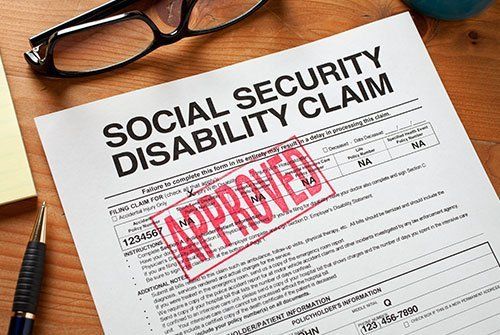Criminal Actions That Indicate Drug Addiction or Alcoholism Disabilities that result from drug or alcohol addiction, shortened to DAA, are not eligible for SSD. The SSA must determine that you would still be disabled without substance abuse and are committed to ending or have ended your DAA.
To make this determination, the SSA looks for indicators in your personal history, including your criminal record. If you have numerous DUIs or drunken disorderly incidents, your application could be denied due to DAA.
Incarceration
As summarized in our previous blog, " Why Your Disability Payments Could End, " if you receive a prison or criminal mental institution sentence, your disability benefits may stop while you remain incarcerated. This cessation of your benefits would include those SSD benefits issued to your loved ones that are directly attached to your SSD status.
Part of the reason incarcerated individuals tend to be disqualified from receiving benefits is that they cannot pay into Social Security and are therefore not part of the program until after their release.
However, the exact circumstances can factor into the continuance of your benefits. For example, if you participate in a rehabilitation program expected to result in an occupation after your sentence and you have a sentence less than one year, your benefits may continue.
Injury During the Commission of a Crime
You cannot receive benefits for injuries sustained during the commission of a felony crime that you were convicted of. You can never use these injuries or the worsening thereof in an SSD application, even after you complete your sentence.
Injury During Incarceration
Similar to injuries sustained during criminal activity, the SSA does not grant benefits for any injury that occurs during incarceration or is exacerbated by incarceration while the applicant is serving out a sentence. However, unlike injuries sustained during a felony act, you may be able to apply for disability benefits after your release.
Outstanding Warrant or Evasion of a Warrant
During the application process, you must be readily available for examinations and must have no outstanding warrants. If you have had a warrant issued against you before or while your application is considered and you do not turn yourself in, the SSA will deny your application.
Additionally, anyone evading arrest cannot qualify for new SSD benefits or continue to receive current SSD benefits.
While criminal charges or convictions will most likely have some effect on your SSD eligibility, you should still speak to an
experienced Social Security attorney
about your options. Legal troubles needn't keep you from ever receiving benefits.
For example, in some cases, the SSA grants applicants disability that comes without benefits. While this period of disability does not provide cash benefits, it locks your current financial and medical information in place so you can receive the same amount of benefits you would currently be eligible for after your legal troubles resolve.
Schedule a consultation with an attorney to determine what SSD benefits you may be able to apply for now as well as in the future.
For expert Social Security legal advice, trust the team at Green Disability Law.



